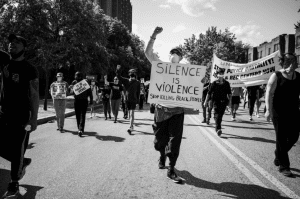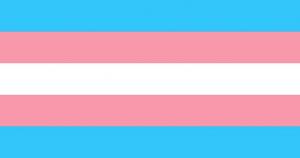
Monument to Hans and Sophie Scholl and the White Rose at the University of Munich.
This is a basic sketch of my political ideals. The word ideal is key here; I don’t expect these things ever to exist perfectly. There are definitely problems and gaps, too—my understanding only goes so far. I provide this summary not because I think it’s that important in itself, but so my readers will have an idea of the angle I’m coming at political questions from. (I’m not primarily trying to persuade people my views are correct, just to lay them out.) It is, if you will, my Kmart knockoff of a utopia.
First, political and social structures exist to serve people, not the other way around. No government, economy, or party has a right to claim any person’s absolute loyalty. Our philosophy of politics has to be shaped by our philosophy of man.
Secondly, when I say “human” or “person” here, or whatever equivalent, I mean any instance of the species Homo sapiens.1 Things like racism or ableism are fundamental offenses against human dignity. It’s okay for a society to try and serve its own needs first; it’s never okay to trample on the rights and dignity of any person, whether they’re part of your society or not. That’s what “rights and dignity” mean.

Human beings were made for community. We have obligations to each other, whether we like it or not; our dignity demands a certain response. Christians have special cause to know this. Scripture tells us repeatedly—notably in the Torah and the ominous parable of the sheep and the goats—that what we do to our neighbor, especially our vulnerable and disadvantaged neighbor, God considers as done to himself. Societies are responsible to ensure that everyone has access to the basic goods of a human life: food, clothing, shelter, health care, education, work, and the ability to start a family.
I say access, because some of these are things society can’t guarantee. For example, a person might be free to start a family, but that doesn’t mean they’ve met the right person. But if they’re not free to start a family because they’re receiving starvation wages, then there’s an injustice going on. The employer who isn’t paying them appropriately is the main perpetrator; but if society is complicit, that’s a problem too. (I think I’m in favor of UBI, as a good compromise between a fitting social safety net and individual people’s freedom to direct their own lives. I’m not totally settled on the issue yet, though.) And because human lives come before property rights, it’s absolutely legitimate to tax the excess wealth of the rich and give it to people who don’t have enough.
Human dignity also implies people should be able to participate in governing society. Some kind of democracy seems like the most obvious way to do this; other forms of government are probably legitimate, as long as they respect this right to franchise.2
Societies are also responsible to respect each person’s conscience. Our conscience is our spiritual core; no society has the right to break into it. The liberties the First Amendment describes pretty much cover it—though people don’t have the right to incite violence on free speech grounds. Using your rights to try and get rid of someone else’s (in this case, the right to life and safety) is not legitimate.
Finally, a word about the political process. Violence is horrible. Self-defense can be moral, but only if it’s a last resort. When it’s possible, gradual reform is always better. (Sometimes, I admit, it’s not possible: for instance, Kurdish Christians aren’t likely to get any gradual reforms out of ISIL.) I’m not on board with most versions of revolutionary politics—certainly not with the accelerationist sort that try to provoke revolution. I don’t even want the rich to die, and rich people are not the only casualties in a revolt.

The total picture of society I’m looking for, then, is something like democratic socialism.3 When it comes to questions like class or borders, I’m not committed a priori to abolishing them; my first concern is that everybody have what they need to live and thrive. If abolishing classes and borders accomplishes that, great, but it isn’t my priority.
So that’s where I’m coming from. The canny reader may be able to guess where I’m going with the black-and-white thinking thing from Part I; that’ll be the topic of my next post.
Continued in The Perfect Is the Enemy of Everything, Will the Real Idiot Please Stand Up, Mea Maxima Copout, and Being a Dick Is Bad Actually.
1This is controversial with some people. In particular, some pro-choice folks will concede that a fetus is a human but deny that it’s a person. They define “person” in some other way, often involving viability. I disagree with this view, obviously, but it’s not necessarily incoherent—I just think it has incredibly scary implications.
2It’s true that some people (e.g. children, some of the mentally disabled, people in comas) aren’t really able to exercise this right.
3Yes, it’s a link to First Things. However, it’s (a) by Pope (then regnant) Benedict XVI, and (b) from 2006, about ten years before First Things went balls-out crazy.











